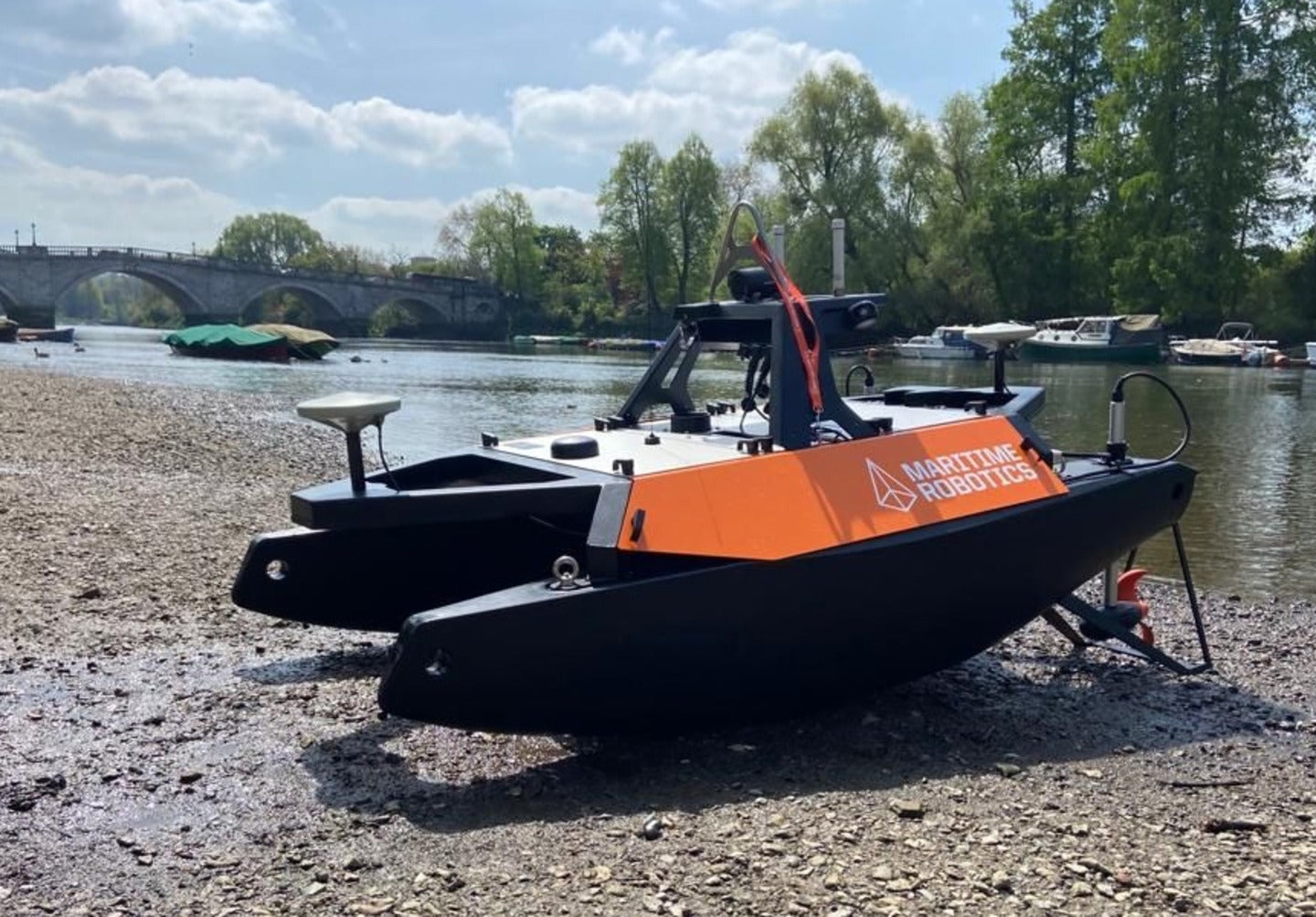
The Port of London Authority (PLA) has revealed its new fully electric remotely operated survey vessel with the University College of London (UCL).
The first to be used at a UK port, the small vessel will form part of an MSc Hydrographic Surveying course that the two organisations have run in a partnership since 1999 and comes after a £236,000 grant from the Engineering and Physical Sciences Research Council.
Alongside being fully electric, the Maritime Robotics survey vessel includes an advanced Winghead sonar and scanning system from tech manufacturer Norbit, allowing for a significant collection of data to ensure accurate information for safety, navigation and maintenance.
John Dillon-Leetch, the PLA’s port hydrographer, was delighted to be leading the way with the launch of the vessel: “Not only does it feature the latest in innovation, thanks to Norbit’s multibeam technology but it also enables our hydrographers to survey in previously inaccessible areas, safely and sustainably.”
As a small remotely controlled vehicle, the vessel can be used in situations where traditional survey vessels would not be appropriate, including shallow waters and locations under marine structures.
It has been launched by the PLA after trials carried out by the PLA Hydrographic Service Team and UCL’s international MSc students in London’s Royal Docks and at the Richmond Lock and Weir.
Dr Cassandra Nanlal, UCL civil, environmental and geomatics engineering’s marine geospatial science lecturer, said: “Our international students will be able to take their experience and knowledge to all parts of the world, to help elevate the standards within the industry.”
The unique electric vessel is part of the PLA’s continuing push for decarbonisation in the marine industry following the announcement that it had halved its carbon emissions in 2022, three years ahead of its 2025 target under the Thames Vision 2050 project to create “a clean river, free of pollution and rubbish.”
A passive debris collector has also been installed at the London Gateway Port in collaboration with DP World, continuing the work of the PLA and Thames 21’s removal of about 200 tonnes of waste from the Thames every year between 2015 and 2019.



